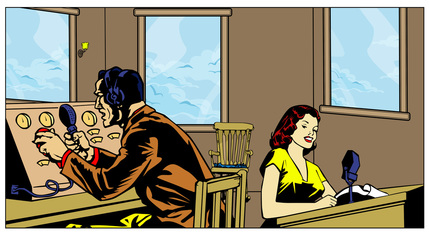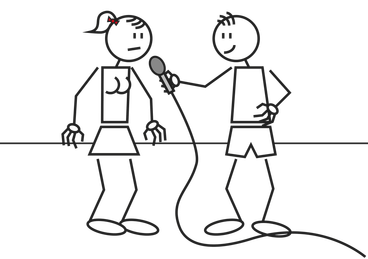|
In 2016, I ran an eight-week radio presenter training course at Whitechapel AM. A typical mistake that beginner presenters make is when they question their guests. They’ll have a topic; they’ll mention their point of view, and then they’ll ask their guests for their opinion. It generally goes like this: Prepared Script “The star is offering four hundred lucky guests - the chance to come and see her perform - With tickets ranging in price - from four thousand pounds to a whopping one hundred and fifty grand ..blah blah blah.” What do you think Dave? - Answer. Jackie. What do you think about this? - Answer. Stephen. Is she charging too much?” - Answer. Why This Form of Questioning Doesn’t Work There are two problems with this style of questioning. The first issue is that the presenter hasn’t bothered to think about their topic. They also haven't bothered to think about their questions. It’s basically: “I think this. What do you make of this?” It makes for boring radio. The second problem is that the conversation and topic never move on. The guests' replies are also very similar. Similar replies makes the segment sound dull. What You Need to Do Is: 1) Have a beginning, a middle and an end for everything that you want to discuss. 2) Know how you’re getting into your topic. 3) Know what you're going to discuss. 4) Know how to move the issue forward. 5) Understand how you’re going to end the segment. Plan Your Journey Beforehand If you’re commenting on a news story and you’re throwing it open to your guests, then plan your “journey” beforehand. Example of Moving the Topic Forwards Here's an excellent example of questioning your studio guests. It came from one of my trainees on my eight-week radio presenter training course. Let's look at it first and then break it down. Presenter: “The star is offering four hundred lucky guests - the chance to come and see her perform - With tickets ranging in price - from four thousand pounds to a whopping one hundred and fifty grand ..blah blah blah. If you had the money, would you pay four grand or more to see Madonna - or anyone else? Is this a good thing - using her name to help charities? What do you think of celebrities cashing in on their fame? Or do you think - this is just Madonna promoting herself? Call us and let us know on XXXXXX And we have our lovely guests on the show tonight - I’m sure they’ll have some thoughts on this. Mel, Duncan, Joshua and Andreas. Good evening. To Mel: What do you think of celebrities endorsing or setting up charities? To Duncan: Would you pay so much to see Madonna? To Joshua: Who would you pay four thousand pounds to see? To Andreas: Have you ever spent a huge amount of money - to see your music idol? I’m sure you've all got thoughts on this. If you’d like to share them with us, then call now on XXXXXX. Whitechapel AM.” Let’s Take a Look at Why It Worked 1. Describe the Story You’ve done your show prep and you’ve researched! :) You’ve found an interesting story for your show. You describe the story to your listeners and your guests. “The star is offering four hundred lucky guests - the chance to come and see her perform - With tickets ranging in price - from four thousand pounds to a whopping one hundred and fifty grand ..blah blah blah.” Tip Always write your numbers in words. It makes it easier to read. 2. Throw the Question Open to Your Listeners "If you had the money, would you pay four grand or more to see Madonna - or anyone else? Is this a good thing - using her name to help charities? What do you think of celebrities cashing in on their fame? Or do you think - this is just Madonna promoting herself?" 3. Call for an Interaction "Call us and let us know on XXXXXX” 4. Now Move on to Your Guests “And we have our lovely guests on the show tonight - I’m sure they’ll have some thoughts on this. Mel, Duncan, Joshua and Andreas. Good evening. To Mel: What do you think of celebrities endorsing or setting up charities? To Duncan: Would you pay so much to see Madonna? To Joshua: Who would you pay four thousand pounds to see? To Andreas: Have you ever spent a huge amount of money - to see your music idol? 5. Final Call for Interaction I’m sure you've all got thoughts on this. If you’d like to share them with us, then call now on XXXXXX. Whitechapel AM.” Why This Style of Questioning Works 1. He’s researched the topic and he's found further questions to ask on the same subject. 2. He asks his listeners different questions (on the same topic) to get them thinking. 3. He asks each guest a different question to move the item on from the last point. 4. He sums up the topic and once again calls for interaction from the audience. Create a Journey for Your Questions When you look at his questions, you see he’s created a journey. The topic is always moving. It’s much more interesting than: What do you think A? What do you think B? What do you think C? To Recap: Find an interesting story for your show. DO YOUR SHOW PREP! :) Have a beginning, middle and end for your topic. Prepare / ask some questions to get your audience interested and thinking. (We're after an interaction.) Research further questions to ask your guests. (We're after their interaction.) Ask each guest a different question. It will give your topic a “journey,” and it will stop your guests giving similar answers. Recap with a call for audience interaction. Learn where to find show ideas. Discover how to show prep like a pro. Master the mixing desk. What it is, how it works and how to use it. Discover what you shouldn't do as a presenter. A random Japanese Twitter friend drew this for me. I like it! Ashley Cowan runs the Online Radio School where he tutors in radio presenting and media interviewing techniques. He was a BBC World Service, Radio studio manager for nine years. He was also the station manager for Radio Kings, the hospital radio station for Kings College Hospital. Other crimes include being the training manager for K2K Radio & Whitechapel AM. As a radio presenter, he's hosted radio shows on three FM stations. That was back in the day when FM radio was a big deal. The poor radio stations that had to put up with his brand of terrible comedy were: Radio DÅB, FLR 107.3 FM, and City FM. Radio DÅB had 100,000 listeners! Woo! When he's not writing about himself in the third person, then he was also a community radio DJ at Radio Kings, TGR Sound, Sydenham Radio, and Croydon Radio. He once did production work for Total Rock.com. That was a fun station with a cool owner and a great broadcast team! Brown fizzy water often accompanied the broadcasts! In his spare time, he's London Irish (so he likes a beer). He's recently created an online "Fingerpicking for Guitar" course. There he teaches the art of fingerpicking for... erm...guitar. Students can learn twenty different fingerpicking styles for their chords. Comedy Training Blog 3 Meet Romedales Bufflehead It’s 7:05 pm and Romedales Bufflehead steps off the train at East Dulwich station in south London. With his Oyster card in hand, he starts to floss his trendy hipster beard. Only cool people had hipster beards thought Romedales, as a chicken leg fell from his beard onto platform one. The Nerdy Man’s Beard The whole hipster beard fashion was a bit of a con really. Many hipsters thought themselves cool with their beards. Many others, however, thought the whole beard thing was just an attempt by boring, nerdy middle-aged men, to try and make themselves seem a bit cooler. And to be honest, it did work for a while. That was until Sharon from the Catford Tesco’s went “Eeer Romedales you plonker, you’re just a boring middle-aged computing nerd with a beard. I’m out of here..By the way that’ll be £2.45 plus 5p for the plastic bag.” Romedales was devastated. Bang went his 30% Tesco discount. Beards are for Winners Sharon thought he was a bit of a loser. A man with lentils and a KFC chicken wing dangling from his beard wasn't cool. She had met Romedales in her local supermarket. He was the bloke with a pot noodle dangling from his face. East Dulwich is Peckham with a Beard As he stood at platform one in his green flannel shirt, bucket hat and beat up Converse trainers, Romedales rolled up a cigarette. He lit it and started smoking. To him, he was the epitome of cool. I mean if he were a refrigerator, then he’d be the Liebherr K2330 - 217 Litre A+ Larder Fridge… in white. To the rest of the general public, he looked more like an iceQ - 4 Litre Mini Fridge – in purple. “Get a fire extinguisher!” screamed a member of the public as Romedales beard suddenly went up in flames. As smoke billowed up into the air, Bob, the Native American from the Appomattoc tribe in Virginia suddenly called out. In fluent Algonquian, Bob said, “Oi Dave mate, what do you think those smoke signals over there say? It's twisting my melon man.” Dave paused for a second, stroked his Native American hipster beard and said, “It says….can I please get a tall, non-fat latte with caramel drizzle mailed to south London please?” “Best pop it in the post then,” said Bob as he started doing a traditional Native American rain dance in his local Walmarts - with a packet of frozen chicken McNuggets down his pants. “Security to aisle five” went the intercom. Hipster FM: Giving Your Beard Attitude Since 2014 It’s wasn’t until 7:15 pm when the slightly singed Romedales finally made it into Hipster FM. Even though his show started at 7 pm, Romedales was relaxed. Starting on time was for losers. Cool DJs, on the other hand, rocked up without any show prep, opened the mic and then blew their audience away! It didn’t matter to Romedales that his audience of three had been sitting at the computer listening to silence for the last fifteen minutes. “Oswald is this bloody thing on?" said Serenity as she stroked her beard with a fork. "And by the way, Oswald, tell me this. Why the hell does it say ‘Bouncy Hooters’ in the task bar when I go to type in Bournemouth?” Community Presenter Mistake Number One START YOUR SHOW ON TIME! If your show starts at 7 pm, then be in the studio at 6:50 pm. Be ready to sit in the presenter chair at 6:55 pm waiting to go. Don’t roll into the studio at 6:59 pm and then go on air at 7:05 pm. It's just unprofessional. I see so many community presenters doing this. Starting a transmission late as a BBC studio manager was a sackable offence. If you have an empty studio, then get in there thirty minutes before your show and set up. We’ll Put The “G” into Gentrification Hipster FM was one of the most hippest, trendiest and funkiest online radio stations that the bearded infested town of Dulwich had ever seen. In fact, beards were so respected at Hipster FM; even the microphones had them. All one had to do to join Hipster FM was: 1) Own a beard. 2) Love beards. 3) Make your wife grow a beard. 4) Have an iphone with a bearded cover. 5) Be a part time club DJ…with a beard. Formed in 2014, by a communist, revolutionary Marxist banker named Asquith Spogony, Hipster FM was originally set up to be the radio station for the local non-league football team, Dulwich Hornets. Dulwich Hornets FC Dulwich Hornets were probably the most yuppiest football team in the entire country. You’d never catch their supporters eating a pie and chips. To Hornet fans, paying £18 for a posh sounding German hotdog was part and parcel of being a Dulwich supporter. Hornet fans were posh. They didn't drink beer. They brought cheese and wine to every home game. Sitting in the Dulwich stands sipping on a Chilean red was how to do football at Dulwich. Sometimes (after a few too many Chilean reds) the Dulwich fans could get a little “naughty.” To be honest, Dulwich fans could intimidate the opposition with the best of them. “Hit him with a Camembert Tarquinius!” went the chant. Raising Piles of Money Dulwich believed in equality. For every single home game, Dulwich Hornets would run a fundraiser. Even if you were a one legged Irish leprechaun with herpes on your haemorrhoids, Dulwich would hold a fundraiser for you. They Were More PC Than PC World Being the most PC football club in the land, Dulwich believed that everyone was welcome….apart from Tooting and Mitcham. To them, Tooting and Mitcham were scum. The local Sainsbury’s always did a roaring trade in Camembert when the two teams met at home. Dulwich was so non-football that they played in pink and blue. To them, pink didn’t mean that they were “up hill gardeners.” No. To them, pink was a manly colour. They were proud to play in pink. Even their season tickets and programmes were pink. Some of the players, however, did object to the burgundy frilly tutu’s that went along with the kit. “Here come the ballerina boys” went the club song. Stick With Me It’s now 7:20 pm and Romedales is set up and ready to broadcast. He gargles some mineral water, does his vocal exercises “beard, beard, beaaaaaard” and then places his right index finger onto the microphone fader. A sense of dread suddenly fills his body. Someone's left a bogey on the fader. Romedales screamed. “ARGHHH THERE'S A BOGEY ON MY FINGER!!” The resulting output was so loud that forty-four people in a local Romanian supermarket in Croatia suddenly went deaf. Romedales threw his headphones twenty feet into the air screaming "Ahhh my ears! OH NO! THE BOGEY'S NOW ON MY FACE!" Community Presenter Mistake Number Two In his panic, Romedales hadn’t set the levels on his microphone. It meant he was distorting. A very common community presenter mistake is distortion on the microphone. In other words, broadcasting far too loud. When this happens, it means the presenter is doing one or two things. A. They haven’t checked their levels before opening the fader. B. They’re chatting away paying no attention to the levels on the meters once they play their song. So always check any levels of any item / person BEFORE you open the fader. And always listen to the output in your headphones. Constantly ask yourself questions like: Does this song etc. sound lower or higher than the last item? Always listen to your output and always analyze your output WHILE presenting. Keep one ear on your levels and one eye on your meters throughout your whole show. Download the PDF on setting levels with three different meters. Where There’s A Bogey There’s A Way After Romedales had finally stopped dry retching, (and had managed to scrape the foreign entity under the presenter's chair), he leaned into the microphone and said: “You’re listening to the industrialised Marquis of Dulwich, and this is movie theme tunes from Albania.” Silence. Bugger. He'd opened the CD fader by mistake. Always check your faders! Community Presenter Mistake Number Three Always make a show for your listeners. Don’t make a show as a self-indulged piece for yourself. Many community radio presenters make self-indulged shows. "Here's a show on film theme music etc.” Also, don’t choose or talk about a subject that only interests you but has no appeal to your audience. A segment on the problems of Mexican immigration in the US will have no appeal to an audience in south London. Always remember your target audience. Make sure that whatever you talk about is relevant to your target audience. Many community presenters forget this point. At the hospital radio station that I managed, we had a “gold” format as most of our patients were old. Many of our presenters wanted to make trans based, hip hop, techno, heavy metal shows that had no relevance to our audience. Remember your target audience. The Fader Strikes Back “Hey you out there! This is Romedales Bufflehead, and you’re listening to the industrialised Marquis of Dulwich. You guys are going to love this; this is movie theme tunes from Albania.” Community Presenter Mistake Number Four When presenting, always speak to the “individual” and not the group. This means avoiding generic phrases like: “Hello you guys out there!” Think about your listener as “one person only.” Speak to your listeners as though you’re only talking to one person. People listen to the radio as an individual. If you present your show as though you’re presenting to a ‘group’ of people, you can create a distance between yourself and the listener. During my radio training days, the message “radio is a personal medium” was always drummed into me. So think of your listeners as one person only. Car Crash Vocals As Romedales was introducing his first song, the vocals suddenly kicked in. Bum! He hadn’t bothered to listen to the song before playing it. Community Presenter Mistake Number Five Don’t crash the vocals of a song. If you’re going to speak over a song opening, then make sure what you’ve got to say is: a) Relevant b) Interesting. Fader Wanking No problem thought Romedales; I’ll just lower the fader, chat some more, bring up the music for a bite and then lower it again. All the pro radio DJs do this. It will make me sound awesome! Community Presenter Mistake Number Six Don’t “fader wank!” Pulling the fader down then speaking, then pushing the fader back up again for music, then bringing the fader back down again for more inane chat, then pushing the fader back up again, etc. This sounds tacky. Bogey Bluetack As the song twanged away, Romedales decided to have a rummage around his nostrils. Blimey, he thought as he pulled out the equivalent of the rocky mountains in one dig. For some reason, he just had to look at his bogey. For a split second, he'd even thought he seen the face of Jesus looking back at him. As he gazed into his Jesus bogey, enraptured that so much gunk was up his hooter in the first place, his song suddenly ended. “Shit,” thought Romedales as he opened the microphone with his little finger while balancing Jesus on his index finger. “Err, ummm, errr. That was the Albanian Sheep Shearers Collective..umm….from the film…err…..Albania Rocks….errr…” Community Presenter Mistake Number Seven Always have the timer on countdown so you know how long you have left on the song. I’ve been caught out a few times when the song has suddenly stopped! Community Presenter Mistake Number Eight Don’t make every second word a “ermmm” and “ummmm.” This is very annoying to listen to on the radio. Who Wants Waffles for Breakfast? Romedales leaned into the mic and said “Basically, Albania Rocks was the biggest, smallest, film ever made in Albania. In fact, in 1993, I once went to Albania. Basically, I was like 11 years old but get this. I remember sitting in the back of the coach like reading my Beano comic. Does anyone remember the Beano comic? Basically, that was a funny comic. But anyway, as I was saying like, I was in Albania, and I remember eating this bagel and..” Community Presenter Mistake Number Nine Don’t waffle! Make everything you say interesting and relevant. Remove unnecessary words and communicate your point in the shortest possible way. Community Presenter Mistake Number Ten Avoid “filler” words such as “like, basically, well, but, etc.” as this can annoy listeners. Production of Doom “Time for a jingle!” said Romedales as he leaned under the chair and added his new found bogey to the collective. “This is Hipster FM!” he said as his freshly cleaned finger pushed the jingle button. “This is Hipster FM” went the jingle. Community Presenter Mistake Number Eleven Never repeat the production (the jingles etc.). Don’t say something that a pre-recorded jingle already says for you. Example: You: And here’s the news: Jingle: And here’s the news Make sure you know how the jingles start and end. “Right, time for some gig listings,” said Romedales as he pressed the button to start his funky hipster music bed. “We love beaaaaaaards!” it sang before the music kicked in. Romedales lowered the fader and started talking. Community Presenter Mistake Number Twelve Don’t bring the fader down so low that you can’t even hear the music. Romedales didn’t have his headphones on. If you don’t wear your headphones, you can’t monitor your levels. ALWAYS wear your headphones. Gigedy Gigedy “Ok, our first gig is about The Bearded Bananas from Peckham. They’ll be playing a live vegetable and fruit set down at The Crown and Beard in..ermmm..Peckham. Our second gig is live at The Swan and Beard in Stockwell. The Melons will be playing a live 130-hour set this Thursday. Get down there for Monday at 0400.... Five minutes later…. Finally, our ninety-seventh gig will be inside the Dulwich Sainsbury’s. David and Tina will be playing a twenty-minute, Icelandic whale music set. You can find them by the tinned mackerel section. That was your twelve-minute gig guide in association with "Just for Pubes." Don’t let your pubic hair look older than what it should be. For a fuller, thicker look with an easy to brush-in application, "Just for Pubes" will have you impressing the ladies in under five minutes.” Community Presenter Mistake Number Thirteen Don’t give out lots of information (events etc.) in the style of a massive list. Listeners don’t sit by the radio with a pen and paper. Mention two to three events and then redirect listeners to the website. Meet Mike Romedales pressed play on the computer and his next Albanian theme music song started playing. Cuthbert the eight pm DJ walked into the studio. “Romedales! How goes it o’ bearded wonder!” “Not good Cuthbert sir. I think I’ve got food poisoning mate. Since yesterday I’ve had diarrhoea man.” “Sounds shit Romedales. Still you’re almost done now, mate.” “Oh man, it’s bad. Last night I was in The Bearded Gnome pub with Sandra. I gave her a kiss and pooed my pants. She kept asking me what the smell was. All I could say was it was my new Lynx Cowpat deodorant.” Romedales suddenly let out a large gaseous fart. Cuthbert’s face crinkled like a ten-pound note in a washing machine. “Jaysus that’s a bit meaty for a vegetarian mate and…..OH MY GOD! ROMEDALES! THE MIC’S UP!” Community Presenter Mistake Number Fourteen Always make sure your mic fader is closed once you play a song. After the song has finished, close its fader. The song may have something at the end of it. The song may continue into the next song. You could get confused with what item you've just played and end up playing the same song twice. Closing the fader is a good visual stop to let you know where you are. It’s All About the Timing Init “Well it’s 7:59 pm and I’ve been Romedales Bufflehead. Time to play my last Albanian theme music song. It’s a short 12-minute piece entitled fjalimit të kreut të opozitës Lulzim Basha gjatë fjalimit të tij përshëndetës. Coming up next we’ve got Cuthbert with his show on Moroccan sponges." Community Presenter Mistake Number Fifteen GET OFF AIR ON TIME! If your show ends at 8 pm, then start playing your last song at 7:55 pm. Next, get out of the studio ASAP. Let the next DJ sit down and set up for their show. Giving the next presenter no setup time is very unfair on them. You wouldn’t like it if someone did it to you. Therefore, don’t do it to someone else. Often presenters get sucked into their shows and end up talking to 58 past the hour. Then they play their last song. Next, they slowly move from the chair and slowly pack up. This gives the next presenter no time to set up. Play your last song on air at 55 past and then get out of the studio. Get five extra tips with this free PDF download. Learn where to find show ideas. Discover how to show prep like a pro. Master the mixing desk. What it is, how it works and how to use it. Discover what you shouldn't do as a presenter. Ashley Cowan (bloke getting mangled on Cat Tail) runs the Online Radio School where he tutors in radio presenting and media interviewing techniques. He was a BBC World Service, Radio studio manager for nine years. He was also the station manager for Radio Kings, the hospital radio station for Kings College Hospital. Other crimes include being the training manager for K2K Radio & Whitechapel AM. As a radio presenter, he's hosted radio shows on three FM stations. That was back in the day when FM radio was a big deal. The poor radio stations that had to put up with his brand of terrible comedy were: Radio DÅB, FLR 107.3 FM, and City FM. Radio DÅB had 100,000 listeners! Woo! When he's not writing about himself in the third person, then he was also a community radio DJ at Radio Kings, TGR Sound, Sydenham Radio, and Croydon Radio. He once did production work for Total Rock.com. That was a fun station with a cool owner and a great broadcast team! Brown fizzy water often accompanied the broadcasts! In his spare time, he's London Irish (so he likes a beer), and he also teaches guitar. He's recently created an online "Fingerpicking for Guitar" course. There he teaches the art of fingerpicking for... erm...guitar. Students can learn twenty different fingerpicking styles for their chords. If you're new to radio presenting, here's a good template to use. Bobby presented his show opening over a one minute music bed. This is why I like it: It tells you who we are Tells you who he is Tells you the name of the show. Tells you what his show is going to do for you. Calls for a request Let's us know that his show has guests, but he doesn't open the mic and start talking to his guests during the opening. I would advise on focusing your opening on you and your show only. He tells us what topics are coming up in his show He mentions the station number again He introduces the first song. All in all, it's very good. ================================================== Opening (50 seconds) Hello and welcome to Whitechapel AM, your award winning radio station here with you for the next hour …. My name's Bobby, and you’re listening to "Music to Make you Smile." We're gonna have a selection of hits that will make you feel relaxed, lift you up and improve your mood. If you've got a request for a special song that means something to you, or you just want hear something that'll put a smile on your face, then call us up on XXXXXX and let us know what you'd like to hear. Also this evening - we’ll have a light-hearted look at the week's news and events, and we'll have some fun conversation from our wonderful guests: Andreas Duncan Joshua and the lovely Melly-Mel Up ahead we've got news and chat about pop star Madonna’s latest charity venture… and we'll find out about Mayor Sadiq Khan’s refurbished hire cycles (previously known as Boris Bikes) So relax and enjoy the show - and don't forget to call us on XXXXX to let us know that special song you want to hear……… But first up - one of my favourite tunes from an absolute legend of music, this is the phenomenal Prince…. Learn where to find show ideas. Discover how to show prep like a pro. Master the mixing desk. What it is, how it works and how to use it. Discover what you shouldn't do as a presenter. Ashley Cowan runs the Online Radio School where he tutors in radio presenting and media interviewing techniques. He was a BBC World Service, Radio studio manager for nine years. He was also the station manager for Radio Kings, the hospital radio station for Kings College Hospital. Other crimes include being the training manager for K2K Radio & Whitechapel AM. As a radio presenter, he's hosted radio shows on three FM stations. That was back in the day when FM radio was a big deal. The poor radio stations that had to put up with his brand of terrible comedy were: Radio DÅB, FLR 107.3 FM, and City FM. Radio DÅB had 100,000 listeners! Woo! When he's not writing about himself in the third person, then he was also a community radio DJ at Radio Kings, TGR Sound, Sydenham Radio, and Croydon Radio. He once did production work for Total Rock.com. That was a fun station with a cool owner and a great broadcast team! Brown fizzy water often accompanied the broadcasts! In his spare time he's London Irish (so he likes a beer) and he also teaches guitar. He's recently created an online "Fingerpicking for Guitar" course. There he teaches the art of fingerpicking for erm...guitar. Students can learn twenty different fingerpicking styles for their chords. Comedy Training Blog 2 Marconi was an Italian and a prolific inventor. He’s widely believed to be the first man to invent the radio. I know this because I can read Wikipedia. In 1894, aged 9, Marconi invented a device that could make a bell ring in another room. It did this by using radio waves. He quickly patented the device and started selling it to his school friends. Soon, legions of students could be seen hiding in bushes outside Italian houses killing themselves laughing. They were having great fun playing radio controlled Knock Down Ginger (Ding Dong Ditch). Sniggering away, they secretly rang doorbells from afar while mustachioed females cried out “Mama mia it's the door-ah bella again!" Bankruptcy soon followed. Back in 1894, radio sets were the size of a garden shed. Hiding behind a bush, sniggering at mustachioed females in calzone shoes, with a twenty-foot radio receiver sticking out of your arse didn’t do your art of camouflage any good. And trying to make a fast getaway from a livid Italian housewife while wearing a shed on your back was no mean feat either. In 1911, aged 26, Marconi moved to London and invented the world’s first ever radio set. He loved listening to radio in bed. His girlfriend, Calamity Whiffletree, on the other hand, hated it. She was always turning over in her sleep and knocking her brains out against the two-foot dials. Marconi fell in love with radio. If he wasn’t bumming one, or french kissing another, then he was always building new sets. By the end of the year, he had sixty-five radio sets in his house. No matter where in the house Calamity went, she was always walking face first into a radio set. She had to sleep standing up due to the bedroom set, cook with her nose to the wall because of the kitchen set, and she even had to do her business with her left leg stuck out of the right bathroom window because of the toilet set. Going for a walk was always problematic. Before she and Marconi could go anywhere, they’d have to hire twelve men, a crane and a horse and carriage so that Marconi could take his portable set with him. Trying to walk hand in hand while Marconi rode on a horse and carriage was very challenging for Calamity. At aged 28, Marconi opened his first radio rental store in New Cross, south London. Soon his radio sets were flying out the window. In fairness, that was mainly due to the local Millwall fans who used to trash his shop after every home defeat. Millwall fans liked his sets. You could do some severe damage to a rival fans testicles with “The Marconi Mauler” twenty-foot radio set. As one Millwall fan said, “The dials on his sets are ideal for stabbing people!” He said this while ramming a Marconi Mauler up a Leeds fan’s left nostril. By 1913, Marconi had rented out over 120,000 radio sets. He was well on his way to becoming a millionaire. Disaster, however, was soon to strike for the second time. Marconi had forgotten a simple fact. No one had actually invented a radio show yet. To stave off a second bankruptcy, Marconi was forced to become the world’s first ever 24/7, 365 days a year, radio DJ. Wherever he was, wherever he went, Marconi had to create a radio show just to stay in business. “Ok, coming up on The Marconi Toilet Hour this..PLOP. And that was PLOP with their first hit single ‘Get the air freshener please and - oh my god I think I’m going to honk.’ Happy Jingle Music The Marconi Toilet Hour is brought to you by Squirty McSquirts constipation relief.” Being the world’s first ever 24/7, 365 days a year, radio presenter drove his poor wife Calamity nuts. “Hi my name’s Marconi, and welcome to the love hour. For the next hour, I’ll be making love to my wife and Ooooooh Myyyyy GoooooOOooood..., thar she bloooows….and we’ll be right back after this short message by THUD...Zzzz.” “Marconi! Is this thing still on?” Over the next four years, Marconi went on to present 15,456 radio shows. His most famous show being “Where’d my foreskin go?” W.M.F.G was a two-hour weekly show aimed at the east end Jewish community from Penge. Guests would come onto the show to ask their parents about their missing foreskins. The show, for some reason, failed to make it in the US. Other shows included “Mapmaking with Midgets”: “Small people need never get lost again” went the jingle. Marconi even broadcast from an abattoir once. “And now he’s going for the leg, and OOOH there goes the leg..and wow there’s so much blood..and OH MY GOD I'm feeling sick, I think I’m going to be the first ever Italian to throw up live on air, and yes here it comes people, I’m now vomiting live on air what looks like diced carrots. But, and get this people, I haven’t eaten any carrots today. THUD..and now I’m face down in my own vomit. It looks like my father was right.” To keep the funds coming in, Marconi started inventing radio adverts: Happy Music “I make £500 an hour by showing my penis on the radio. If you’d like to have a throbbing bank account too, then write to us now at: ‘I’ll get my nob out on air for cash,' Cock Street, Bell End, London SE5 4PZ.” Marconi also made a lot of money with radio pornography. Everything was going throbbingly well until one day the sound effects man got rather drunk. Boris, the Russian cockney sound effects man, got so mangled that he inadvertently destroyed an episode of: “Would You like to Stroke My Microphone?” “Oooh, Aaah, oh Maximilian your receiver is so manly.” Cow mooing sound. “Errr….umm...oh Maximilian, your antenna is too large.” Elephant trumpeting. “FFS! (Deep breath). Maxy, it feels so warm.” Creaky door sound opening. “Nice hooters Mandy!” Sound of someone sneezing. “Ride me like a steamship Horace.” Sound of a horse doing a curry poo. More pressure was put on Marconi when a rival radio station started broadcasting in 1916. talkBOLLOCKS was started by a man called Albrecht Stringybark. Albrecht was to become Marconi’s radio nemesis. Even as a boy, Albrecht was dastardly. He used to have great fun sucking the water out of his goldfish bowl with a straw. Laughing cruelly as his pet fish "Gilbert" flapped around for dear life, Albrecht, as the doctors back then called it, was a complete basket case. As a teenager, he liked using a flick knife to clean out the black bits from between his toes. This toe cleaning, flick knife maneuver, really impressed the local girls. At aged twenty-five and with only one toe left, Albrecht started talkBOLLOCKS. talkBOLLOCKS was a male only radio station, and unlike Marconi, it hired professional radio DJs. Their primary goal was to talk bollocks about things that women thought were bollocks. On February the 12th, 1916, the breakfast show went live. It was hosted by an overweight Scots man called Barclay Buckminster-Fuller-Soloncrank. The first ever talkBOLLOCKS radio topic was: “Don’t drop your chocolate spread and toast onto your white bedspread otherwise, the lassie will think you have diarrhea.” While it proved to be highly controversial at the time, it was a massive rating winner. Marconi hit back in 1917 with his new station talkUNREFRIGATEDFROZENGOODS. While listeners didn’t flock to the station in its early days, “The Horse and Carriage” drive time show proved to be immensely popular. The show had a new feature, “The Eye in the Sky.” It was cutting edge technology back in 1917. Basically, it was a bloke strapped to the top of Nelson’s Column with a candle on his head. His job was to report the local traffic news. “We’ve had a horse decapitation on the Charing Cross High Road. And a carriage has shed its load of horse manure on the Sidcup bypass and... oh my god...... the straps can’t hold me and my twenty-foot radio set anymoooooooooreeeeee...” Audio silence. When Marconi wasn’t involved with the radio, then he was inventing things. Marco loved to invent. He invented the motorised toilet so one could do one’s business while out and about. He also invented the haemorrhoid flosser, and the speaking colostomy bag. Every time you did a number one, it would say, “Aaah I needed that.” Every time you did a number two, it would make a loud flushing sound. It flashed green and red until the bag was emptied. Walking around a Glasgow high street while one’s pants continuously flashed was never going to be a top seller. Marconi sadly died in 1937 while out walking around St Pauls. A traffic reporter fell on his head. After Marconi’s death, his wife Calamity sold all of his radio sets. After thirty years of being crushed by radios, she was finally able to walk around her house. Two weeks later, a hidden set in the loft crashed through the ceiling and flattened her like a pancake. Her last words were: “Marconi you bastarrrrrrr…..” So what can we learn from Marconi’s life? (The boring part) 1. Find a station that’s broadcasting what you want to do. Don’t join a station that isn’t playing your style of music. 2. Sign up, volunteer and practice as much as you can at a local community radio station/a hospital radio station. 3. Study professional radio DJs. Imitate their shows in your early days. 4. Accept the fact that (like this blog) you're going to be terrible at first. However, with constant practice, you will get better. 5. Always prepare your shows. Most beginner radio presenters believe they can talk entertainingly off the top of their heads without scripting. They can’t. At Whitechapel AM, I’ve created an eight-week radio presenter training program. By week two, 90% of the beginner radio DJs realise they need to prep their shows. I love it when they get this point. 6. Listen back and analyse your shows. Ask what worked and what didn’t work. How can you make it better? 7. Practice at home with your show openings and a music bed playing. Read your presenter links aloud at home first. See what sounds good and what sounds bad. 8. In your early days, script everything. As soon as you get better, you can move over to a bullet system of prepping. It means you won't have to script every single link. To develop a great one hour show can take up to three days of work. As soon as you’ve finished one show, you need to start on the next show. It’s like a factory, so you need a system. After you’ve presented your show, take a day off and do nothing. That leaves you six days to prepare for your next show. Six days sounds like a long time, but in reality, it isn't. It typically takes one full day to prep a well thought out, well-researched show. Prepping at the last minute takes a LOT of energy so try and avoid this. I speak from experience. Break your tasks up. Look in your diary and block off sections that you can use to prepare your show. You need to think ahead. If you don't, you'll be out of time, and you'll be stressing out again prepping at the last minute. Start with the fun stuff first. Choose your music. It will help get you rolling. Then make a running order. Put in your music and work out your times. Next, work on your presenter links. If you don't push yourself, you'll become "comfortable" with presenting averagely bland shows. And once you become comfortable, you'll never get past being a hospital/community radio DJ. If however, you consistently pull yourself up with self-critique, your standards will naturally become higher. It will lead you to start making strong radio shows. Once you do that, doors in radio can open up. There are other jobs in radio that hospital/community radio DJs can also do. If you give yourself a comfortable ride, you’ll be a boringly average amateurish radio DJ, etc. If you pull yourself up regularly, demand more from yourself, you will excel. I trained at Radio Kings, the hospital radio station for King's College Hospital from 2000 - 2005. Four of my trainees (including myself), went on to work for the BBC. Therefore, I know that getting a real radio job from community radio, etc. is possible Get as much radio experience as you can. Learn to present, master the mixing desk, create radio packages and learn to interview. My hospital radio experience got me a studio manager job at the BBC. Don’t be an arrogant radio DJ. Listen to your trainer and take on board everything they tell you. Walk away with an attitude of always wanting to learn and always wanting to improve. If you can’t find a trainer, then enroll on one of my courses, and you’ll be able to ask my advice anytime. I’m now practicing comedy writing for fun (hence these rather dodgy blogs). I know I have a long way to go. Therefore, I’m adopting the same strategy I used to break into radio. One, I study. I’ve read some excellent books by John Vorhaus. Next, I practice. I force myself (through these blogs) to consistently write. It’s tough; it’s hard, but by always trying to write I’m hoping to create a system for myself. Now I'll do nothing but practice until I’m happy with my style and skillset. Then I'll step up to the next league and start again. If I continually practice, in five years time, I will be much better than I am now. I’m playing the long game. It took me five years to break into the BBC. But I made it. You can too. If you want to know more, then here’s a straight written blog about breaking into radio. Finally, enjoy it all. Enjoy the struggle, the prep, the mistakes, the learning and the improvement. As long as what you’re doing makes YOU happy, that’s all that matters. This blog was a killer. I struggled. It's not my funniest. However, I laughed, and I enjoyed myself while writing it. And guess what? It all starts again tomorrow! GROAN! :) Keep on rocking! Ashley Learn about where to find show ideas. Discover how to show prep like a pro. Master the mixing desk. What it is, how it works and how to use it. Discover what you shouldn't do as a presenter. Radio King's (King's College Hospital) circa 2001. Check out Cool Edit Pro 2 and that PC! Ashley Cowan runs the Online Radio School where he tutors in radio presenting and media interviewing techniques. He was a BBC World Service, Radio studio manager for nine years. He was also the station manager for Radio Kings, the hospital radio station for Kings College Hospital. Other crimes include being the training manager for K2K Radio & Whitechapel AM. As a radio presenter, he's hosted radio shows on three FM stations. That was back in the day when FM radio was a big deal. The poor radio stations that had to put up with his brand of terrible comedy were: Radio DÅB, FLR 107.3 FM, and City FM. Radio DÅB had 100,000 listeners! Woo! When he's not writing about himself in the third person, then he was also a community radio DJ at Radio Kings, TGR Sound, Sydenham Radio, and Croydon Radio. He once did production work for Total Rock.com. That was a fun station with a cool owner and a great broadcast team! Brown fizzy water often accompanied the broadcasts! In his spare time he's London Irish (so he likes a beer) and he also teaches guitar. He's recently created an online "Fingerpicking for Guitar" course. There he teaches the art of fingerpicking for erm...guitar. Students can learn twenty different fingerpicking styles for their chords. Comedy Training Blog 1 It's 1995, and I’m in Aarhus, Denmark. I’m there to “study” at Aarhus University. The course carries no grades, so I ask the American teacher if I “have” to attend. He says no, but believes I should attend classes for cultural reasons. I agree with him. And that was the only class I went to at Aarhus University. Summer In Denmark It’s summer in Denmark and the temperature has reached a crazy, sweltering and rather humid thirteen degrees. To the frozen Danes, a single ray of sunshine instantly means shorts and T-shirts. There I am wrapped up like a giant tampon on a day trip to trauma counseling, meanwhile every Dane is strutting around like it’s Miami. The Ex-Girlfriend Of Doom It's Friday, and I’m happily skipping down "By Thor!" street. Suddenly I bump into the ex-girlfriend. "By Odin," she says while adjusting her Viking horns. "Bugger," I say as I look for an escape route down Valhalla street. “Ashley! How are you!!” says the girl who once performed a ritual sacrifice on my heart using a Viking axe, 123 pin tacks, 4,321 staples, four casks of dynamite, a number 12 double-decker bus from Peckham and a Norwegian cow with diarrhea. I replied to this Viking heartbreaker with a line of such awesome magnitude that even Japanese earthquakes where shaking more than Elvis's hips on amphetamines. “Errr..yeah I’m great,” I said as I looked down at some Danish pigeon poo and wondered if the Vikings ever used it in coffee. It turns out the ex is now a radio presenter on the rather poorly named local FM radio station: “The Open Tape Workshop.” Can you imagine the jingles for that station: "You’re listening to Accounting with Becky on The Open Tape Workshop.” I mean it’s not exactly a German sausage in your pants bulge now is it? Bertha The Lesbian Anyway, it turns out that old Bertha was presenting a gay and lesbian radio show every Friday to 100,000 Danes. Specialist topics such as: “What does a Swedish marrow feel like?” and “Last night a cucumber changed my life” were flying across the Danish airways. Bemused Danes were suddenly looking at their lunches in an entirely different way. "Err, Freja, hold the cucumber!" The Most Important Question That All Men Have To Ask There was one important question, however, that I had to ask her. “Ermm Bertha? Was I your last boyfriend before you went over to Carpet World”? Thankfully, she said no. She turned lesbian after the boyfriend after me. Hoorah! My manhood was saved! My Manhood Was Saved! Bertha invited me down to the sexy tape workshop. Being relieved that my manhood was still intact, I agreed. OMG! The Station Had A…. I knew I was destined for good times as soon as I walked into the station. The station..wait for it…only smegging had…drum roll please maestro…something that could only have been passed down from heaven… something that would never have happened in the UK...something that was the equivalent of putting 747 jumbo jets into my underpants - so that when I finally did meet a female, I could say "boarding!" Yes! The station had...GET ON WITH IT.....a beer vending machine!!! Yup for 75p / $1 you could buy a bottle of ice cold Carlsberg beer from a machine, in a radio station, whenever you wanted it! Here I was face to face with a beer vending machine! Once they crowbarred me off it and detangled my tongue from the coin insert, I went and sat in the station's canteen. There I sipped on a cold Carlsberg (or HOF as it’s more commonly known) while Bertha discussed the pros and cons of candles, cacti, and cold coffee jugs live on the station’s channel 2. After I had sucked dry the HOF with the station's vacuum cleaner, a rather hot and saucy Danish girly came over and started talking English. Back in 1995, Aarhus was still off the beaten track, in other words, "mingers" like me were what I like to call “exotic.” All I had to do was say “I’m English." If they were mad enough, and could at least count their toes, then I was well in. Saucy Mette And The Bum From Another Planet Saucy Mette (pronounced Med-da) for some reason, invited me on to her radio show. She was broadcasting on channel one, the posh channel with all the listeners. The lesbian implement show (on channel two) probably had about 5,000 listeners, whereas channel one had around 100,000 listeners. On hearing this, my bowels got up, put on a Shakin Steven's record and started grooving. I remember sitting in the studio, smoking a cigarette (Denmark rocks) talking a load of old cak about God only knows what (Denmark rocks) pretending that I was a radio DJ. However, my rectum had other ideas. He decided he was auditioning for an episode of X Factor and Simon Cowell wasn't being nice to him. "You're like poo." said Simon in his white t-shirt as the crowd booed. After ten minutes going "Erm, um...yeah….beer vending machine rocks.. WOOO!” to 100,000 Vikings, I was finished. I came out of the studio and I went and sat in the canteen. That was the moment when radio changed my life! I was hooked there and then! Man, it was so much fun! Saucy Mette oozed out of the studio bum first (beep, beep, beep) and my tongue started doing the Riverdance across the floor. She came over to me and told me to wait in the pub across the road. Like a school boy virgin who mistakenly eaten 23 blue Viagra's instead of red and yellow M&M's, I was in the bar faster than an Exocet missile with a boner. Wetherspoons Are The Garden Of Eden Compared To..... If you’ve never been to a “traditional” Danish bar, then boy are you in for a shock. You think Wetherspoons are an amazing experience well trust me you haven’t seen anything yet. As I swung open the door, three old men turned and looked at me. “Stranger,” they said in a heavy Danish accent, using a totally different language, and a word, to me that sounded like “twat.” The tumbleweed sensing freedom from this alcoholic old folks home of hell packed up his things, and then promptly made a break for the door as twelve rats tried to hold him back. This Bar Was Danish Equivalent To Deliverance And there I was, all alone in this version of a Danish “Deliverance.” “Squeal like a Frikadeller” wouldn’t have gone amiss here. https://en.wikipedia.org/wiki/Frikadeller I ordered a bottle of Carlsberg (in English) thus blowing my super awesome plan of trying to look hard, tough and erm.. Danish. Then I sat down and waited (as the tumbleweed karate chopped one rat while another rat brought out some nunchucks). One hour later, saucy Mette thrust her posterior in and woke me up by sitting on my face. She wasn’t alone. She was with a couple of male friends, Preben and Bent. Bent seemed ok until I told him that his name meant homosexual in London slang. I can still hear his voice to this day going “Oh..I’m not going to London then.” I don't think he ever did, poor bloke. Mette disappeared again. I was now stuck in an old man’s Danish bar with a bent guy and a bloke called Preben. Preben challenged me to a game of pool, and when Mette finally came back, Preben and I were locked in an epic beer drinking, pool playing, more beer drinking, “we love everyone in this bar” mission of doom. Mette, seeing how mangled we were, said goodbye and went home. It turns out she had a live-in boyfriend, so I was glad that I found the pool and beers more enticing that day. Oh My Lordy! I’m Exotic! More of the radio station gang piled into the bar, and suddenly the beers were flowing. Because I was “exotic,” I was getting well tanked for free. The station invited me to their staff party. We ended up somewhere not too far from the bar. Drunkenly, I asked the assistant manager if there was any work experience. More drunkenly, he offered me an FM radio show to 100,000 Danish people starting on Tuesday (it was now Saturday morning). After they had scraped me off the floor, I accepted. My First Radio Show To 100,000 Vikings My first ever radio show was a fantastic combination of: “and that was AC/DC..and now this is Oasis. And that was Blur, and now this is The Beatles” And WHAT???? I still have forty-three minutes left to fill! “Fuuuuuu…” Always Prep Your Shows! The guy who did the show after me always prepped (swotty bastard). He started me on the road to prepping my music shows. He also ended up being my lifelong friend. I even went to both of his weddings, just like his ex-wife. (Hey this is Denmark, they’re kind of relaxed about these things). Always Listen Back To Your Shows After my first show, I started listening back to my shows. “Gordon’s Alive!” went Brian Blessed as he looked down the toilet after a bowl too many of Fruit n’ Fibre. Man, my shows were bad! Forcing myself to listen to my shows was a good thing to do. By hearing how bad I was, I was able to start asking myself why? Genuine questions like: Why was that link bad? Answer: I didn’t do my research. Why was that link bad? Answer: I rushed it through. Why was that link bad? Answer: I was on the floor at the time licking beer of a chair leg. I Fell In Love With Radio Something inside of me clicked, and I became determined to create great radio shows. And soon enough I started getting better. You can take all the drugs in the world but trust me on this, when you nail a radio show, when you get it right, when that hour flies by and everything you say hits home, then it’s the best feeling in the world. And I wanted more. Back To Hospital Radio After a year of presenting an FM radio show (in English) to naughty Danes in Denmark, I decided to return to London and study radio at Lambeth College. Twenty Years Of Radio Hopscotch Stepping into that Danish radio studio in 1996, led me to study radio in 1997. I took those skills and joined a hospital radio station in 1998. I became the manager. I trained for five years. I joined the BBC and stayed there for nine years. I’ve now started an online radio training school, and almost twenty years later, I’ve become a volunteer radio trainer again at hospital radio. Why? Put simply; I love radio. I love it so much that I still do it for free. In fact as you read this I'm tonguing my clock radio and rubbing my groin along the mixing desk. Basement Of Doom I’m currently writing this blog from the basement of Whitechapel AM. After an eleven-year break from hospital radio, I’m back. I’ve already implemented an eight-week radio presenter training course. Volunteers get hands-on practical training and free access to my online radio presenter training course. There they learn the most important aspects of presenting, show preparation. Five weeks into the training programme, I can see the volunteers improving from when they first started. It's this "change" that drives me on. What Radio Gave Me First of all, radio gave me fun and laughter in my life. One thing they don’t teach you at college is that radio presenting is so much fun. Without it being fun, I wouldn’t still be involved in radio twenty years later. Radio Gave Me Confidence I can interview and approach anyone now. In the past, I was quite scared of approaching people. However, if I need a guest, an interview or if I just need to call someone randomly and make heavy breathing noises, then it’s no problem. Being on the air for twenty years, forcing myself to call and interview random people time and time again has made me more confident. Radio Has Helped Me Be More Creative When I first started presenting in Denmark, I presented a comedy hour. The show was all over the place, but week in week out we tried new ideas. We made many bad comedy packages, had many terrible show segments (“Call and We’ll Draw” being a rather stupid one. Or “Cooking with Swedish Pierre.”) That’s when I called a mate in Sweden, he put on a dodgy French accent and we cooked live on air in Denmark. Most of it was crap, but we had a cracking laugh, and it forced me to think, research and create. Radio Has Helped Me Help The Sick And The Infirm I love hospital radio, and it's why I’ve gone back to it after an eleven-year break. Hospital radio provides two core services. One, it offers quality radio training for free in return for voluntary commitment. Two, it provides a service of care and comfort. Being in a hospital can sometimes be a lonely, frightening and stressful experience. Hospital radio stations provide a service of entertainment, comfort, and care through one on one contact. Just one thing though. Don't try to play bingo with the patients on the stroke ward. That went down like a lead balloon. "Hi! We're from the hospital radio station! Would you like to play bingo....oh...ok." Radio Got Me A Job At The BBC My love of radio got me a job for nine years at The BBC World Service. I worked for The Africa and Middle East region, working on some humongous radio transmissions. We even had an on-site bar at work! Back in 1995, when I walked into that Danish station, I couldn't imagine that seven years later I'd be working on one of the largest radio shows in Africa. Radio Gave Me Life Long Friends Everyone that gets into radio gets into it because they love it. You’ll always share a common bond with these people. Most of my best friends came from my love of radio. And guess what, we still love radio even to this day! Radio changed my life, and if you give it a go, I’m sure it will change your life too. Learn where to find show ideas. Discover how to show prep like a pro. Master the mixing desk. What it is, how it works and how to use it. Discover what you shouldn't do as a presenter. Ashley Cowan runs the Online Radio School where he tutors in radio presenting and media interviewing techniques. He was a BBC World Service, Radio studio manager for nine years. He was also the station manager for Radio Kings, the hospital radio station for Kings College Hospital. Other crimes include being the training manager for K2K Radio & Whitechapel AM. As a radio presenter, he's hosted radio shows on three FM stations. That was back in the day when FM radio was a big deal. The poor radio stations that had to put up with his brand of terrible comedy were: Radio DÅB, FLR 107.3 FM, and City FM. Radio DÅB had 100,000 listeners! Woo! When he's not writing about himself in the third person, then he was also a community radio DJ at Radio Kings, TGR Sound, Sydenham Radio, and Croydon Radio. He once did production work for Total Rock.com. That was a fun station with a cool owner and a great broadcast team! Brown fizzy water often accompanied the broadcasts! In his spare time he's London Irish (so he likes a beer) and he also teaches guitar. He's recently created an online "Fingerpicking for Guitar" course. There he teaches the art of fingerpicking for erm...guitar. Students can learn twenty different fingerpicking styles for their chords. He's always available for a free beer and even accepts cans of beers in the post! In 2010, I was on holiday in Denmark. I was standing at Aarhus train station waiting for my girlfriend to arrive. Today was the day she was flying in from London to join me for a weeks holiday. It's fair to say I was very excited. When she arrived, my face broke into a massive smile, and I gave her a big hug. Immediately she said, "we've got to talk." She told me she'd made a mistake by dating me and dumped me there and then in the train station. It's fair to say I blubbed like a teenager. After she'd ripped my heart out, she went back to Copenhagen airport to fly home. She had a BBC project she wanted to work on, and I was an inconvenience. I lost 5kg's that week. I couldn't eat. I was totally devastated. The Book of Life The day I was due to fly back to London, my Danish friend and I went to a small charity store in a tiny Danish town. There I found a book called "The Magic of Thinking Big" by David J Schwartz. It was five Danish kroner (50p / 74c). To stop me blubbing on the plane home, I started to read it. There and then I knew I was holding a great book. In 2010, I wasn't ready to act on Mr Schwartz's advice. However, after I'd landed, I made sure I kept the book. When the Student Is Ready the Teacher Will Appear Four years later I re-read it. The chapter on goals really stood out for me. David says: "The person determined to achieve maximum success learns the principle that progress is made one step at a time. A house is built a brick at a time. Football games are won a play at a time. Every big accomplishment is a series of little accomplishments. Winning any objective requires a step-by-step method. Make the next task you perform, regardless of how unimportant it may seem, a step in the right direction." Belief Moves Mountains If you want to get paid to work in radio, the very first thing you have to do is believe you can do it. While this advice sounds like typical fluff, I've actually found it to be very true. A Goal Is a Dream with a Deadline Napoleon Hill (1883-1970) My mission in life is to provide affordable training. When I first had the idea, I needed to buy some software. The software was £150 / $200 to rent for a year. 90% of my friends and family said it was too expensive. They told me to save my money. I almost stopped there, but something inside of me said: "I'm going to build this training site no matter what it takes." I had no idea how I was going to do it, all I knew was that I was going to try. I've always wanted to run a radio training school, but I could never afford the premises, and I could never afford the equipment. I still can't. All Glory Comes from Daring to Begin Les Brown says: "Not only is it possible for you to have your dream, but it's necessary that you go for what is yours in the universe. You do what it is you're supposed to do. If you're supposed to build something, and you don't know how to do it, then learn. It's on you. You've got to make that happen; no one is going to bring it to you on a silver platter. No one is going to say, here's your dream. It's hard, yes it's hard. It's difficult, yes it's difficult, but it's worth it." Go Anywhere as Long as It's Forward David Livingstone (1813-1873) David Schwartz says: "Goals are as essential to success as air is to life. No one ever stumbles into success without a goal. Goals provide energy. Energy increases when you set a desired goal and resolve to work towards that goal. The most amazing thing about a deeply entrenched goal is that it keeps you on course to reach your target." The Driving Force of Goals Because I finally had a "goal", it meant I had something inside of me driving me forward. And my destination? That was simple. To lay the "first brick." As soon as I paid the £150 for the software, I was committed towards my goal of providing cheap, quality, online radio training. I couldn't go back now. I'd paid! I deliberately paid the money on purpose, so I had to go forward. Spending the money was my first brick. What I Must Do Is All That Concerns Me, Not What the People Think Ralph Emerson (1803-1882) I joined Udemy and online instructor Facebook groups. There I watched in amazement as everyone produced training course after training course. By the time I'd written my first script, other people were already publishing their second course. Many members were showing the groups their large payslips of thousands of dollars earned. Meanwhile, I was stuck in a south London bedroom wondering how the hell I was going to build this course. He Who Has Patience May Accomplish Anything (Rabelais 1494-1553) When you start anything new, it's frustrating. It sucks. You have no idea what you're doing, and it takes ages to learn all the new skills that you need. I'm still learning now. My first course, "Discover The Secrets to Successful Media Interviews" took me nine months to make. I made so many mistakes, and I wasted a lot of time trying to build it. I came close to quitting on numerous occasions. There were times when I just wanted to throw the computer at the wall. For months, I had technical problem after technical problem. Whatever could go wrong, did go wrong. A couple of times I even laughed out loud thinking that someone in the universe was deliberately trying to stop me from making the course. I regularly stopped, took weeks off, always thought about quitting; yet I always returned. Don't Dwell on What Went Wrong. Instead, Focus on What to Do Next (Denis Waitley 1933-Present) Two things drove me on (and also drove me insane). I'm old fashioned. I would rather spend ages trying to make a course great, then spend three months rushing out a course that was just average. Why? It's all about having a good product. If your product is good enough, it will sell itself eventually. For me, that's a no-brainer. The second thing that drove me on was the fact that I had come so far. It was now impossible to stop. To spend four months making 50% of a course and then quit would be stupid. Put simply, I grumbled like a bitch, but I had no choice but go forward. It's why you should always just start. Starting builds momentum and momentum carries you forward. The First Brick Is Where You Make The Mistakes My second course, "The Under Priced Awesomely Made Radio DJ Training Course" took me six months to make. I didn't make half as many mistakes the second time around. While I still moaned here and there, I did enjoy making it a lot more! The second time around I was much faster. Why? It's because I'd learned a lot from making my first course. Believe You Can As David Schwartz says: "Belief, strong belief, triggers the mind to figuring ways and means and how to. And believing you can succeed makes others place confidence in you. Those who believe they can move mountains, do. The 'okay-I'll-give-it-a-try-but-I-don't-think-it-will-work' attitude produces failures." It took me a long time to figure this out. Don't Listen To The Doubters Negativity surrounded me for years. I could never see it. It was only when I heard the Les Brown YouTube video "Negative People" that I suddenly became aware of all the negative comments around me. That's when I finally realised how badly these negative comments were holding me back. Tip If you listen to the doubters, you'll be living YOUR life how they want you to live it. Ignore the non-believers. Find Your First Brick If you want to work in radio, find your first brick. This could be writing an email to a college, enquiring about joining a community station, reading a book, phoning a hospital radio station etc. Next, join a community/hospital radio station and get involved with everything. You might start off wanting to be a radio DJ; then you may go and make a radio package. Suddenly, you might love being a community radio reporter. Maybe you'll enjoy working the mixing desk? Might this experience get you to consider being a tech op instead of a radio DJ? Who knows? However, you won't know these things until you try everything. And community radio stations are perfect for this. They'll let you try everything. When you join a community radio station, you'll start learning new skills and experiences. Then you'll meet new people. Meeting new people with the same passion as you will open up more doors. After a while, you'll have a good skill set. Take those new skills and join a bigger station. Learn even more skills and make more contacts. Soon you'll have lots of radio experience. Consider that everything you do is a CV for yourself. Get yourself a portfolio of quality shows or quality radio packages etc. Now you can make a great demo tape. After that, you can start applying for radio presenting/reporting jobs, etc. This is how it works. It's all about experience and having an excellent portfolio of quality work. Give this blog on radio application forms a read. Applying for Jobs in Radio Your first brick will set you in motion. It will start a chain of events. My Radio Chain In 1997, I laid my first brick. I enrolled in Lambeth College, and learned the basics of radio. Afterwards, I joined Radio Kings, a hospital radio station in south London as a volunteer. (Ironically, it was my volunteer work where I learned the most radio skills.) Two years after joining Radio Kings, I became the manager of a radio station with two studios and thirty volunteers. Now I had professional authority. For the next five years, I trained in all aspects of radio. From 1997 to 2002, I put in five application forms to the BBC World Service. When they rejected me, I went away and got more experience. Then I reapplied. In 2002, on my fifth application form (and second interview) I became a studio manager. I stayed at the BBC for nine years. Belief moves mountains. My Current Chain In 2014 I laid the first brick of the Online Radio School. I started working on the script for my "Discover The Secrets To Media Interviewing" course. Then I started making it. It killed me, but the sense of achievement I felt when I finally launched in 2015 was fantastic. I then made a second course. That killed me. Then a station contacted me and said: "Hey your website looks good, can we enroll?" Then two more stations enrolled. Now my website had some credibility. More individual students registered. Then I wrote an ebook called "The Beginner’s Guide To Making Radio Documentaries." I emailed it to a few community stations. One station wrote back and said: "Hey, you should contact Dr. Matthew Linfoot, Course Leader in Radio Production at the University of Westminster. He may have some part time work for you." I emailed the university, he liked my book and said: "Let's hook up for a coffee after the summer break." Then I volunteered at a local hospital radio station in east London. I started training for free. My new station manager recommended my training courses to a larger organisation. Today they emailed me and enquired about my courses. Nothing has happened yet, but just by putting myself into that environment I've suddenly made a new opportunity. If I hadn't volunteered my time for free, my new manager wouldn't have recommended me to this larger organisation. You make your own opportunities in life by simply laying bricks. Brick by brick. This is how it works. Lay your first brick in radio today. Do anything that will move you forward. I still have a long way to go. However, I've also come a long way. If I hadn't laid that first break two years ago, I wouldn't be where I am now. In two more years, I'll be even further down the line. Brick by brick. If you keep going forward, you will arrive at your destination. If You Quit, You Will Never See It Know this. Getting into radio may not happen in the time that you want it to happen. It might take six months, 18 months, 24 months. It took me five years and five application forms. But if you quit, if you give up, if you stop, if you do not persevere, you will never see it. It will never happen. Listen To Motivational Tapes Daily Les Brown says, if you listen to motivational tapes every day it will change the way you think. He's right. I started spending ten to fifteen minutes a day just playing motivational tapes from YouTube. Whenever I was cooking, washing dishes, having a shave, etc. I played Les Brown videos to motivate me. Those videos started to change the way I thought. As Les says: "87% of all self-talk is negative. You've got to make a conscious, deliberate, determined effort to say yes to your dreams. Why not?" Birds Of A Feather Flock Together "If you hang around with losers, you'll end up a loser. Unconsciously you'll pick up their ways. You'll pick up their habits; you'll pick up, most importantly their attitude about life. If you're around cynical, negative people all the time, you will become cynical and negative. " I don't hang around with the same negative people that I used to anymore. It's not because I don't like them, far from it. They're all good people. I just don't hang around with them anymore because a) I don't have anything in common with them now and b) it drains me. Any positive thing I would say was always met with a barrage of negative comments. They were negative not because they wanted me to fail, but simply because they'd bought into the negative way of life. As Les says: "It doesn't take any effort to be a loser. It doesn't take any motivation, any drive, in order to stay down there on a low level. But it calls on everything inside of you to say; I'm going to challenge myself." Maybe it's a British thing. We're quite negative here. I've found it hard to find people who will give you reasons why you can succeed. Most people I know find reasons why you can't succeed. It's why I moved on from my negative friends. Whenever I said I wanted to do X, Y or Z, they'd just tell me the reasons why it couldn't be done. This is why I'm a big Les Brown fan. His words on YouTube are my new positive friends. Recap Believe you can work in radio and you will. Lay that first brick. Join a local station. Volunteer for everything. Present radio shows, make radio packages. Drive the desk. Get yourself a portfolio of quality work and skills. Showcase future employers these assets. Surround yourself with positive people. Their enthusiasm will rub off on you. If you quit, you will never see it. Keep going forward. Enjoy it too. I'm having a blast doing my own thing. As for the ex-girlfriend who dumped me at Aarhus train station and ripped my heart out? I forgave her a week later. I never really spoke to her after that, but internally I forgave her. At the end of the day, I had to accept that she didn't want to be with me. That's life. Forgiving her was easy. It also set me free to work on my dreams! Learn where to find show ideas. Discover how to show prep like a pro. Master the mixing desk. What it is, how it works and how to use it. Discover what you shouldn't do as a presenter. Ashley Cowan runs the Online Radio School where he tutors in radio presenting and media interviewing techniques. He was a BBC World Service, Radio studio manager for nine years. He was also the station manager for Radio Kings, the hospital radio station for Kings College Hospital. Other crimes include being the training manager for K2K Radio & Whitechapel AM. As a radio presenter, he's hosted radio shows on three FM stations. That was back in the day when FM radio was a big deal. The poor radio stations that had to put up with his brand of terrible comedy were: Radio DÅB, FLR 107.3 FM, and City FM. Radio DÅB had 100,000 listeners! Woo! When he's not writing about himself in the third person, then he was also a community radio DJ at Radio Kings, TGR Sound, Sydenham Radio, and Croydon Radio. He once did production work for Total Rock.com. That was a fun station with a cool owner and a great broadcast team! Brown fizzy water often accompanied the broadcasts! In his spare time he's London Irish (so he likes a beer) and he also teaches guitar. He's recently created an online "Fingerpicking for Guitar" course. There he teaches the art of fingerpicking for erm...guitar. Students can learn twenty different fingerpicking styles for their chords. Radio Application Form Tips In 2001, I was putting together my fifth application form to the BBC. In the past four years, I'd been rejected four times, and I couldn’t figure out why. I had lots of experience, but I wasn’t getting shortlisted for any interviews. One of my volunteers, a guy called Peter, had a job helping unemployed people find work. He lent me the book: 'The Complete Idiot's Guide to The Perfect Interview'. Talk about a great book.You can find it here on Amazon. Tip Don’t tell them how good you are. Tell them how good you are for the role. The book taught me to realise that the job description is the key to your application. This point sounds simple, but it’s essential to understand. In all of my previous applications, I was telling employers how experienced I was, but I wasn’t directing that experience specifically to the job role. Remember, don’t tell them how good you are, tell them how good you are for the position. You have to go through the job specification in detail. Anytime it mentions a particular skill, match that skill with real-life experience. Next, provide a concrete example from your life. That's the trick. Tip Always find an example from your past work, which matches the skill the employer wants. Below is a mock version of an application form to be a BBC studio manager. Radio Kings refers to a hospital radio station that I volunteered at, and K2K refers to a community station that I helped. For any job that you apply for, this is the first step you must do. Go through the form and match real experiences to the skills they're after. I apologise for my terrible handwriting! The Problem Solver Think of your application as being a problem solver. The candidate skills they're looking for are problems that the company needs solving. Once you've found the problem (the skill they desire), then find a similar example from real-life. Show them how you solved that problem. And do this for 90% of your answers. Just make sure you find different ways of phrasing how you addressed the issues. Work through the form line by line. Example: 'Experience of successful working in teams with an ability to form effective working relationships quickly, to inspire confidence and to influence others'. 1. Find an example from your real life. We want to create a mini-story for each skill required. If you’re not experienced in radio, then find examples from previous jobs, volunteering, etc. Ask yourself: Was this case typical or had something gone wrong? Did you have to step in and help out? 2. What skills, training, or education did you use to solve the problem? 3. What behaviour traits did you use to fix the problem? 4. What happened at the end of this situation? (Only provide positive answers). 5. What did you learn from the problem? Give a precise answer. Was time saved? Was money made? Was money saved? Were you a team player in this example? Did you have to act alone? Make a Short List for Each Skill They Want Here I'll take an example from my hospital radio experience to address the example question above. Every week I had to perform a ward round with the team. Going on to the wards is scary, and some volunteers didn’t want to do it. I spoke to them, and I showed them I understood their fears. Through dialogue, I built a relationship with them, and I showed them why we did ward rounds and what benefit it gave the patients. I used skills of understanding, reasoning and communication. I got these skills from dealing with patients and staff every week. The result was the volunteers did the ward round and felt brilliant afterwards. I learned to understand colleagues fears and apprehensions, and I learned how to encourage and give confidence. The outcome was we managed to perform a ward round that cheered up the patients. Turn That List into a Written Story (This may be a tad long. Woops!) ( O_o) For five years at Radio Kings, all volunteers had to carry out a ward round once a week. Volunteers had to go up onto the wards and talk to the patients. My job was to collect the volunteers and bring them up to the hospital wards to interact with the patients. Once on the wards, our job was to ask for song requests or to offer a friendly ear to patients in need. Many times patients were afraid and just wanted to talk to us. On some occasions, patients could seem downright hostile to the volunteers. For this reason, many volunteers avoided ward rounds. With volunteers not turning up, the station had to sanction people for non-attendance. Not enough people turning up meant we couldn’t do our job correctly. It was a big issue for the station. My role as the volunteer coordinator was to understand my colleague's fears and to offer them encouragement and confidence. I would always explain to new volunteers in advance that patients could get aggressive; however, under no circumstances should they take it personally. The best way to deflect a patient's aggression was to listen, understand, and empathise with the patient's comment. Once I explained their aggression came from a fear of not being in control, then the volunteers became more understanding. They realised the patients were scared and wanted to offload onto somebody. The result of my interactions with the new volunteers was that nobody avoided ward rounds in the future. Once the new volunteers began to see the effect they were having, station morale went up. Five years of dealing with patients and staff at King's College Hospital gave me skills of understanding, reasoning and communication. Do This for as Many Points as You Can Develop a collection of short stories for the areas that they want. Have at least five examples of the above. Try to get this into your application form as much as you can, but do keep it varied. Introduce these stories in different ways. Remember, you’re a problem solver. Don’t tell them how good you are, tell them how good you are for the role. IMPORTANT : DO NOT OVER EMBELLISH! In other words, don’t make any of it up. On my second BBC application form, I stated I'd set up bands in my hospital radio station. I hadn’t. I'd only miked up a few acoustic singer-songwriters. The BBC interviewers asked me in-depth questions about miking up a band. I couldn’t answer them. They knew I was lying. It was an excellent lesson for me. Push the boundaries; however, make sure that every example you provide can be backed up with real-life 'honest' experience. If you can’t, they will find out! If you don't have enough experience in a particular area, go away and find it. Look at the application form and see where you need to beef up your skills. Next, find a station and get more experience. In the future, it'll help your application forms. Job Interview Advice Let's say you've got an interview. Here's some very quick interview advice that helped me break into the BBC. Know as much as you can about the employer. Understand their needs and problems. What are the needs of the industry? How can you help the company meet these requirements? Educate your employer. Show them how you will assist them. Focus on the company's needs and be their solution to their problems. Showcase an image of stability. They'll want employees who'll stick around. Speak with enthusiasm about the company's mission. Show them how you intend to dedicate yourself to their goals. Have about five stories prepped that will showcase your skills. Don't tell them how great you are, show them you're their solution. Give your answers in a way which demonstrates your interest in them. With all your answers, focus on their needs, their concerns, etc. Give answers which demonstrate how you'll save them time and money. Employers always want to save money and time. Frame your answers to showcase how you'll do this. Learn where to find show ideas. Discover how to show prep like a pro. Master the mixing desk. What it is, how it works and how to use it. Discover what you shouldn't do as a presenter. Ashley Cowan runs the Online Radio School where he tutors in radio presenting and media interviewing techniques. He was a BBC World Service, Radio studio manager for nine years. He was also the station manager for Radio Kings, the hospital radio station for Kings College Hospital. Other crimes include being the training manager for K2K Radio & Whitechapel AM. As a radio presenter, he once hosted radio shows on three FM radio stations. That was back in the day when FM radio was a big deal. The poor radio stations that had to put up with his brand of terrible comedy were: Radio DÅB, FLR 107.3 FM, and City FM. When he's not writing about himself in the third person, then he was also a community radio DJ at Radio Kings, TGR Sound, Sydenham Radio, and Croydon Radio. He once did production work for Total Rock.com. That was a fun station with a cool owner and a great broadcast team! Brown fizzy water often accompanied the broadcasts! Learn To Be A Radio DJ Now! |
Ashley..
is an ex BBC, radio studio manager, and the ex manager of Radio Kings, the hospital radio station for King's College Hospital. He's presented on three FM stations and waaay too many community stations. Archives
May 2020
Categories
All
|
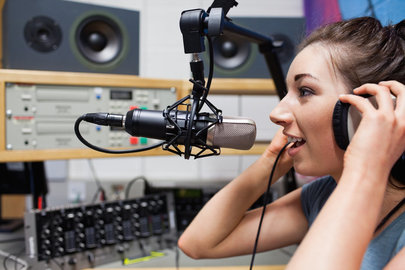
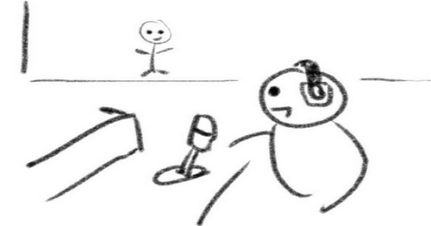

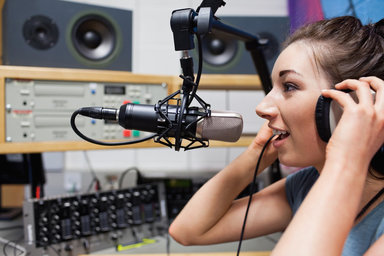
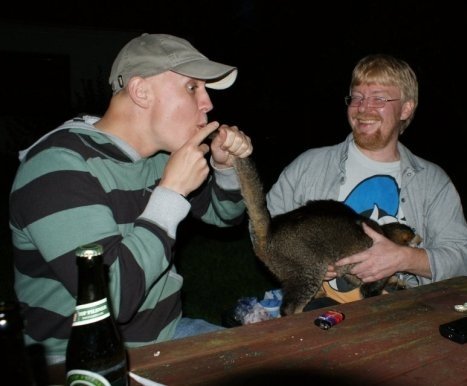
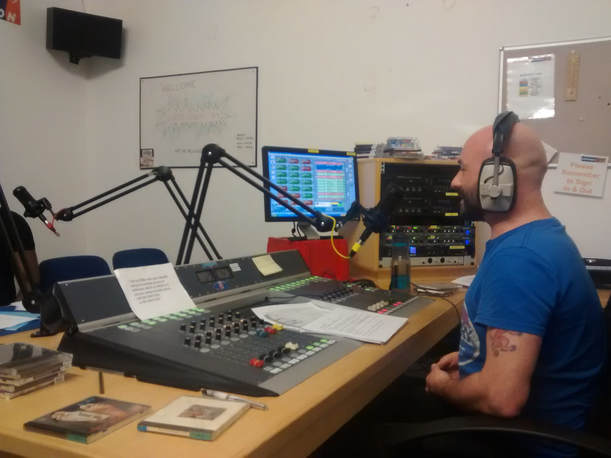
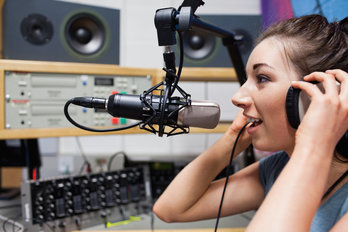
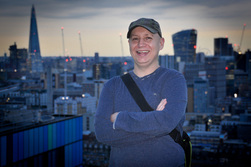
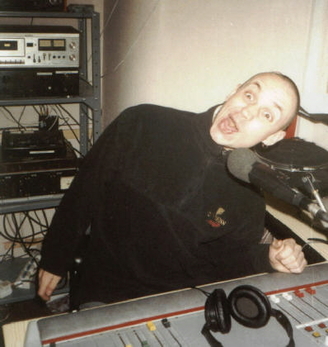
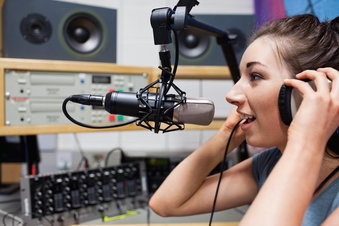
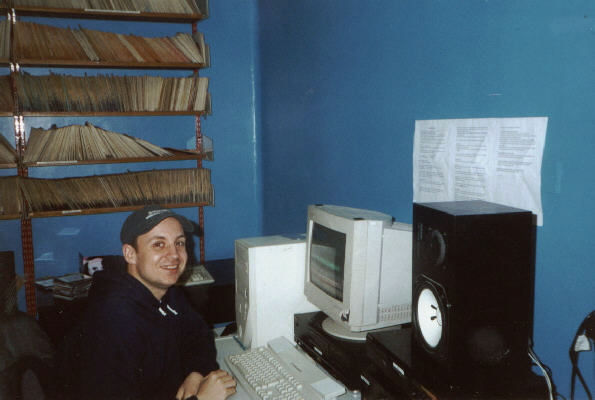
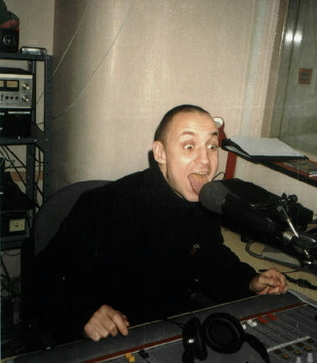
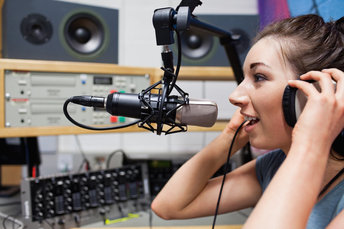
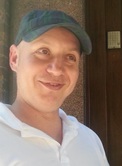
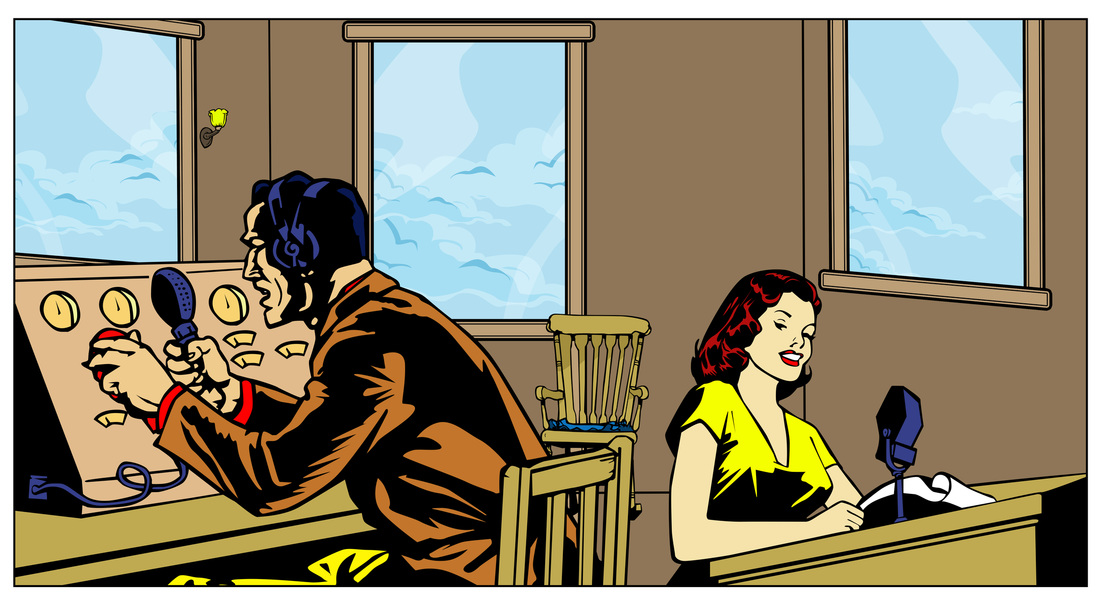
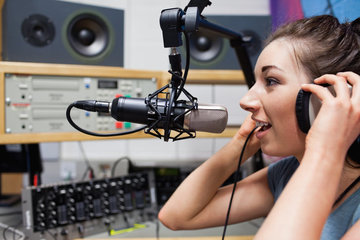

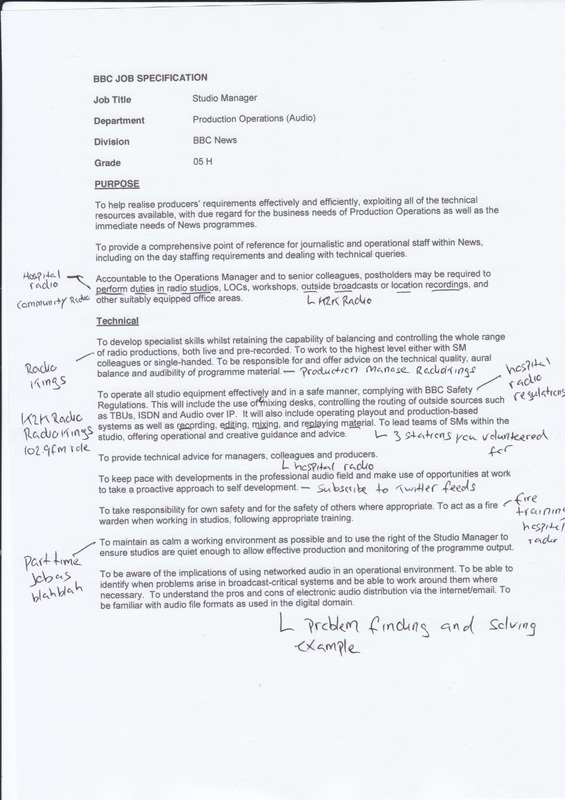
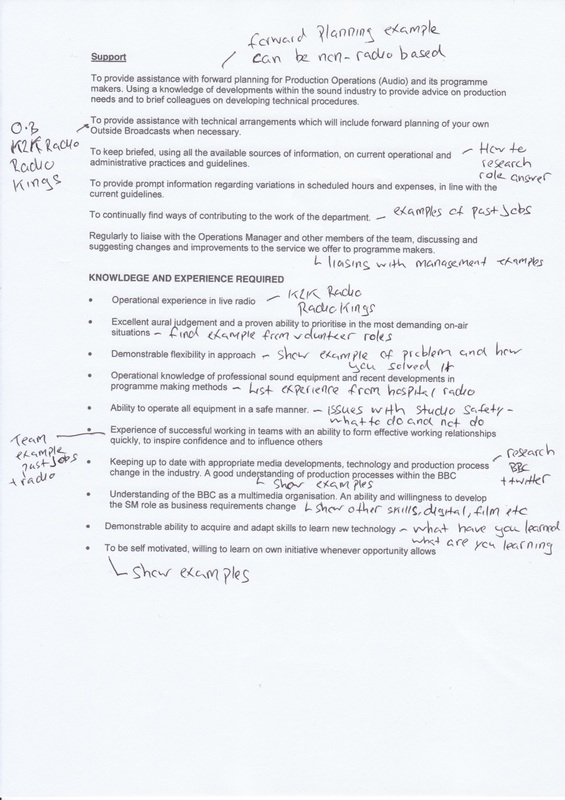
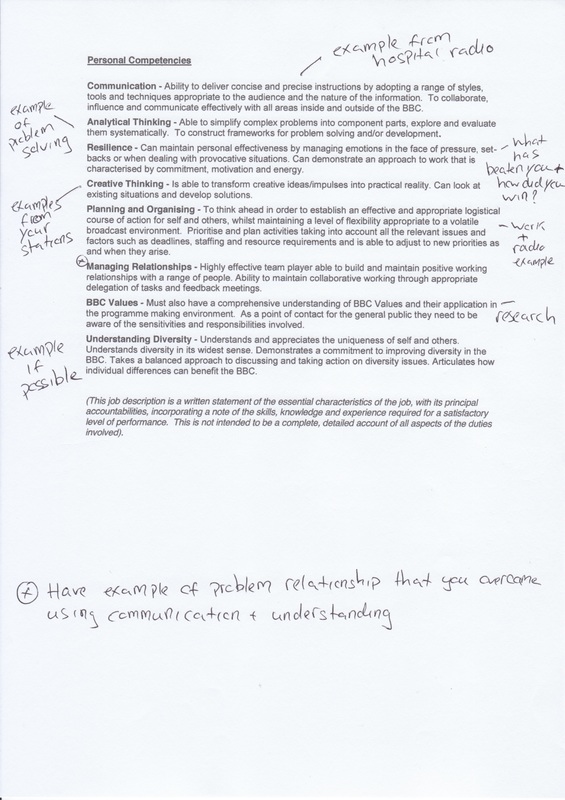
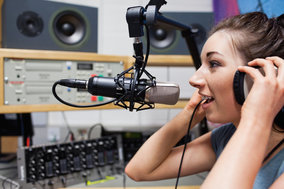
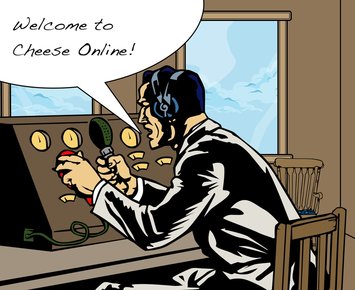
 RSS Feed
RSS Feed
